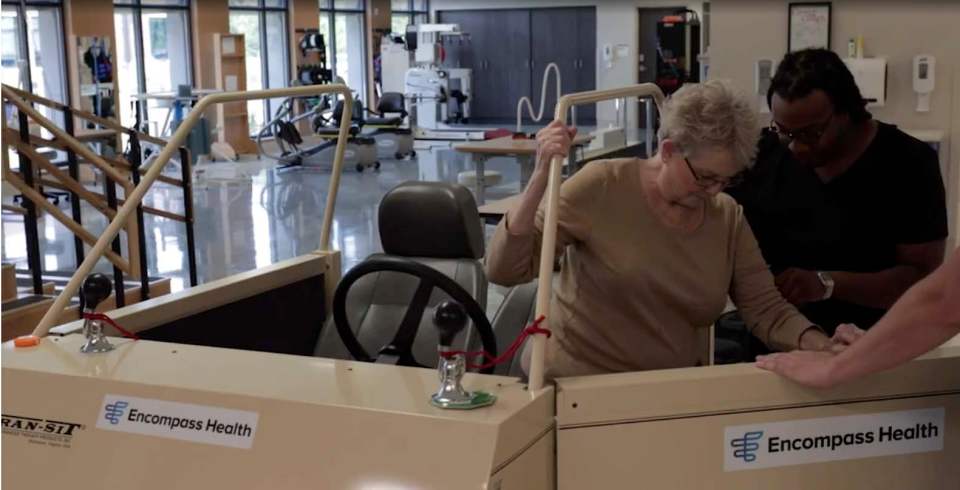As we age, tasks that once seemed simple can require increased focus, practice and dexterity. Take, for example, driving. While this may be second nature to most, it is a privilege that requires sharp physical, visual and mental skills.
The following conditions have effects on vision, memory, attention-span and the ability to problem solve and act quickly, all of which are necessary skills to remain safe on the road:
- Stroke
- Parkinson’s disease
- Alzheimer’s disease
- Traumatic brain injury (TBI)
- Arthritis
Those who suffer from any of these conditions and wish to get back behind the wheel should seek physical rehabilitation from a certified driving-rehabilitation specialist or an occupational therapist specializing in driving rehabilitation.
As a driver rehabilitation specialist, we work with patients to reclaim and preserve driving independence and ensure that each driver manages safe capabilities both physically and cognitively. Our priority is to interview the patients to gain insight into their current situation and ultimately determine their goals. An individual’s injury or medical condition is as unique as the one who suffers it, so a distinguished rehabilitation plan is essential.
Driving rehabilitation includes practicing the movements and skills needed to travel safely, such as getting in and out of the car or reacting to unexpected hazards on the road, as well as testing and training, and recommending any adaptive equipment that might be necessary. Rehabilitation can also consist of on-road assessments of driver competency, training in the use of adaptive equipment and development of driving reentry plans. Since maintaining mobility is one of the most important aspects of preserving independence, older drivers can benefit from participating in these activities.
Throughout the physical rehabilitation process, it is crucial to continuously evaluate cognition, vision, visual-perceptual skills and physical abilities to determine one’s readiness to return to the road. One of the more challenging aspects of driving for anyone is the need to be aware of and react to multiple stimulation in your environment incredibly quickly. Though the patient may feel as if they are ready to begin driving independently, when someone gets behind the wheel of a car, everything is magnified in terms of stimulation and speed.
Once a patient has completed driver rehabilitation and is ready to begin driving, we do make recommendations to further ensure safety on the road:
- Avoid driving during rush hour, bad weather and after dark
- If you are feeling anxious or having an off day, don’t drive
While losing the ability to drive, however temporary it may be, takes a large toll on independence, driving is also a risk that millions of people take every day. This is why driving rehabilitation is critical for those who need it, as it may save your life and the lives of others on the road.
The content of this site is for informational purposes only and should not be taken as professional medical advice. Always seek the advice of your physician or other qualified healthcare provider with any questions you may have regarding any medical conditions or treatments.



